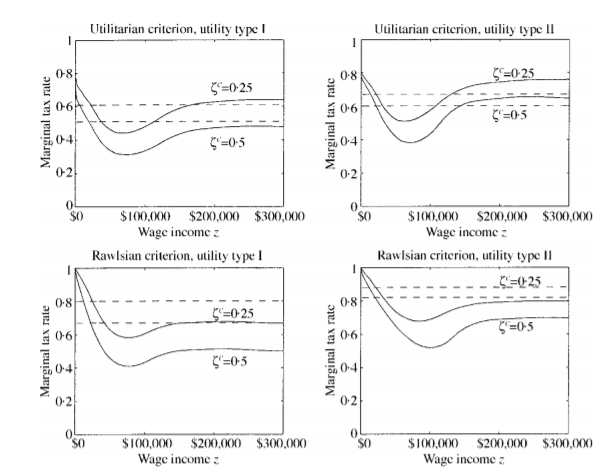I haven't studied economics, but I'm interested in applied ethics, and I came across Frank Ramsey's paper "A Mathematical Theory of Saving". I thought his application of calculus to a normative economic question was very interesting ("How much of its income should a nation save?"), and I was wondering whether this approach is still pursued in the field, and whether anyone could recommend some modern papers which attempt/accomplish something similar.
-
$\begingroup$ Practically the entire modern growth theory. We call it the Ramsey-Cass-Koopmans model $\endgroup$– Grada GukovicCommented Apr 4, 2021 at 10:19
-
$\begingroup$ Thanks! Could you also recommend one or two papers showing a good application of it for answering similar questions? $\endgroup$– tormadCommented Apr 4, 2021 at 10:43
-
$\begingroup$ As GG expressed above: Ramsey is ubiquitous throughout modern macroeconomics. In fact, macroeconomic modelling is expressed as individuals making choices between consumption and savings in order to maximise their welfare. Ramsey-type papers are typically very formal. I would recommend this kind of lecture to get a grasp on it. youtube.com/watch?v=xKhZ_ZTsxGQ&t=719s $\endgroup$– EB3112Commented Apr 4, 2021 at 11:50
-
$\begingroup$ Thanks again! Now I feel silly for not trying harder to find it on my own. Will give it a look. $\endgroup$– tormadCommented Apr 4, 2021 at 14:41
1 Answer
If I understand correctly you are not interested just in saving but to mathematical approach to normative questions in general. This approach is actually quite common in the whole literature that uses normative economics.
For example, the question of redistribution is predominantly normative question, because as opposed to questions of social efficiency, how much our society should redistribute depends on normative judgment. For example, optimal redistribution and marginal tax rates under Rawlsian social welfare function (based on Rawls MaxMin principle and his moral philosophy) will look different than tax system if one adopts utilitarian moral philosophy.
You could have a look at Saez (2001) or Diamond (1998). Here is an example from Saez which shows how different marginal tax rates look under different normative judgements:
The simulations above are based on:
$$ \frac{T'(z_n)}{1-T'(z_n)} = \left( 1 + \frac{1}{\epsilon_{lT}} \right)\frac{\int (1-b_m)f(z_m)dz_m}{1-F(z_n)} \frac{1-F(z_n)}{z_nf(z_n0)}$$,
with $b_n \equiv \frac{\Psi'(u_n)u_c}{\eta}+ nT'(z_n) \frac{\partial l_n}{\partial \rho} $.
I wont go over every single term in the formula as this would turn this answer into a book but broadly speaking the first part $\left( 1 + \frac{1}{\epsilon_{lT}^*} \right)$ is given by elasticity of labor supply to income taxes and you can think of it as an 'efficiency' parameter, the second part $\frac{\int (1-b_m)f(z_m)dzm}{1-F(z_n)}$ tells us what the marginal benefit of redistribution is and this marginal benefit factors in underlying actual welfare which is captured by $b_n$ which depends on social welfare function, and finally $\frac{1-F(z_n)}{z_nf(z_n0)}$ s the part that captures the relative magnitude of distortions created by this taxation.
In turn the social welfare function is nothing more than just mathematized version of some moral philosophy, the most common ones I seen in literature are utilitarianism, Rawls MaxMin, libertarianism or sometimes called conservativism - especially in US and some variations of those (although sometimes you will see more exotic ones as well).
Generally, I think it is fair to say that most economic papers that discus normative judgements mathematize these. You should look at various graduate textbooks or notes on public economics/economics of public sector or on economics of inequality or public choice (this is because these are the sub-fields that deal with normative judgments most frequently as opposed to let's say monetary theory).
-
1$\begingroup$ Yes, your understanding was spot-on. Thanks for taking the time. Most of the mathematics is beyond me, but I find the general approach to be very interesting. $\endgroup$– tormadCommented Apr 4, 2021 at 22:47
